Normal Elementary Phonics Worksheets for Ages 5-8
14 filtered results
-
From - To
Discover engaging and educational "Normal Elementary Phonics Worksheets for Ages 5-8" designed by Kids Academy. Our printable worksheets offer a fun and interactive way to strengthen phonics skills, perfect for early readers. Children will enjoy activities that help them recognize letters, understand sounds, and begin blending those sounds to form words. Featuring colorful illustrations and kid-friendly themes, these worksheets are ideal for both classroom use and at-home practice. Enhance your child’s literacy foundation and phonemic awareness with our expertly crafted resources. Prepare young learners for reading success with Kids Academy's phonics worksheets!
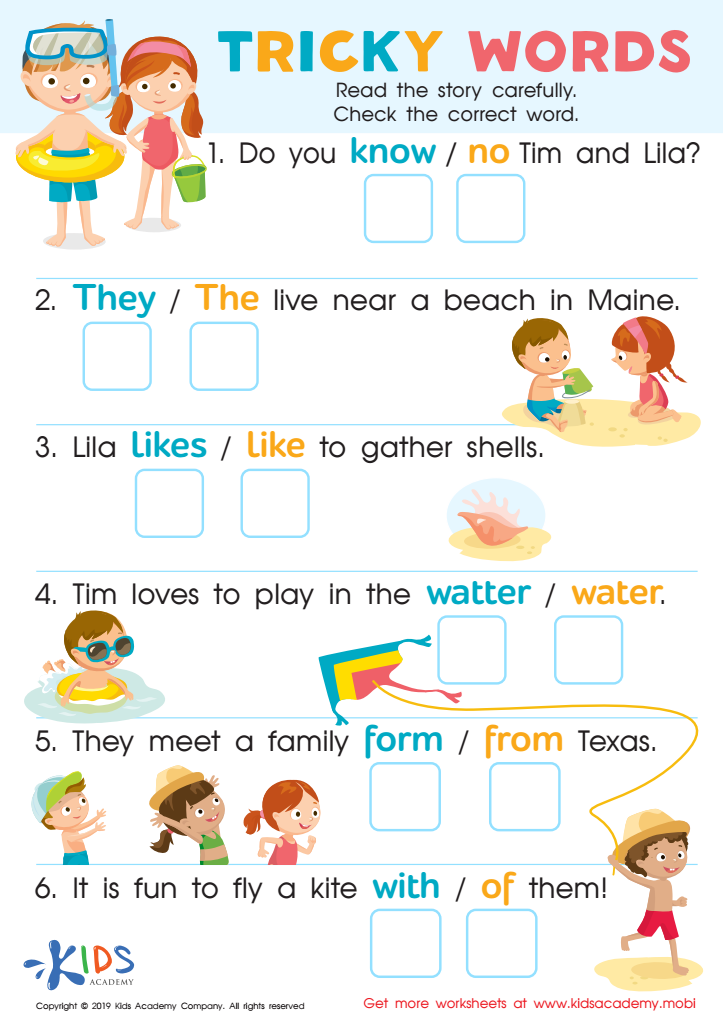

Tricky Words Worksheet


Phonological Awareness: Assessment 1 Worksheet


Phonics and Word Recognition: Assessment 1 Worksheet
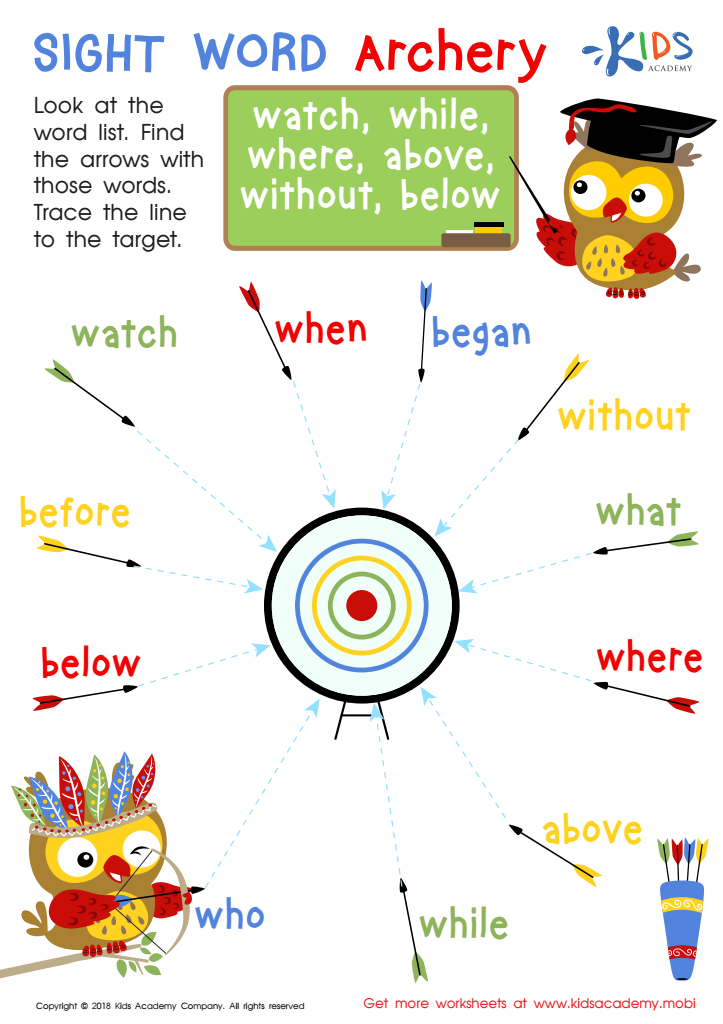

Sight Word Archery Worksheet
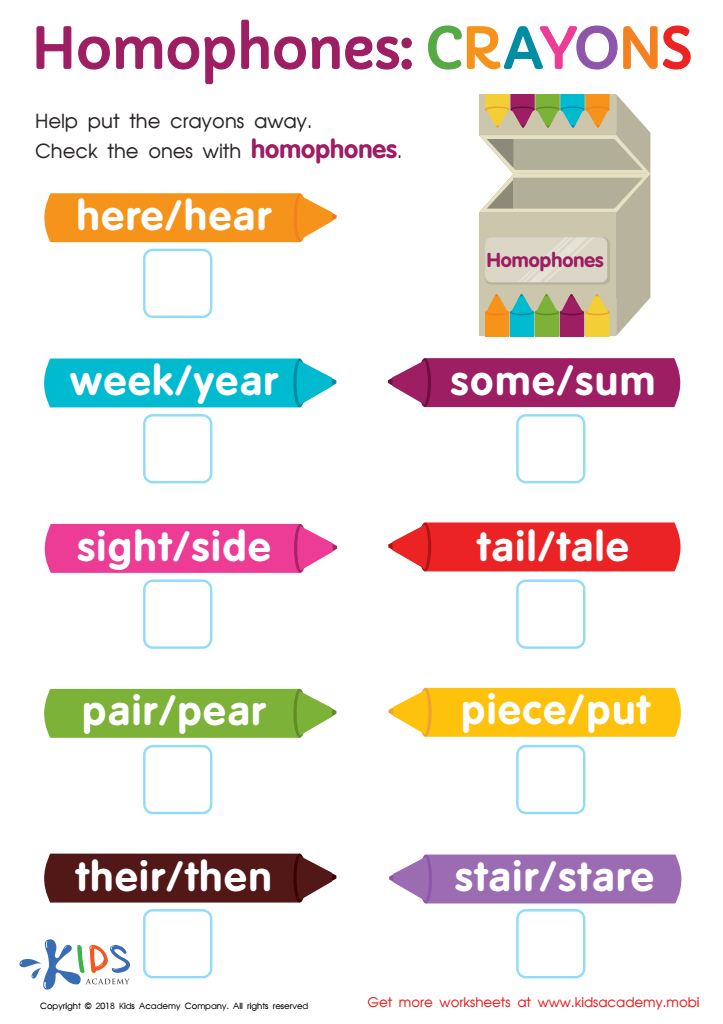

Homophones: Crayons Worksheet
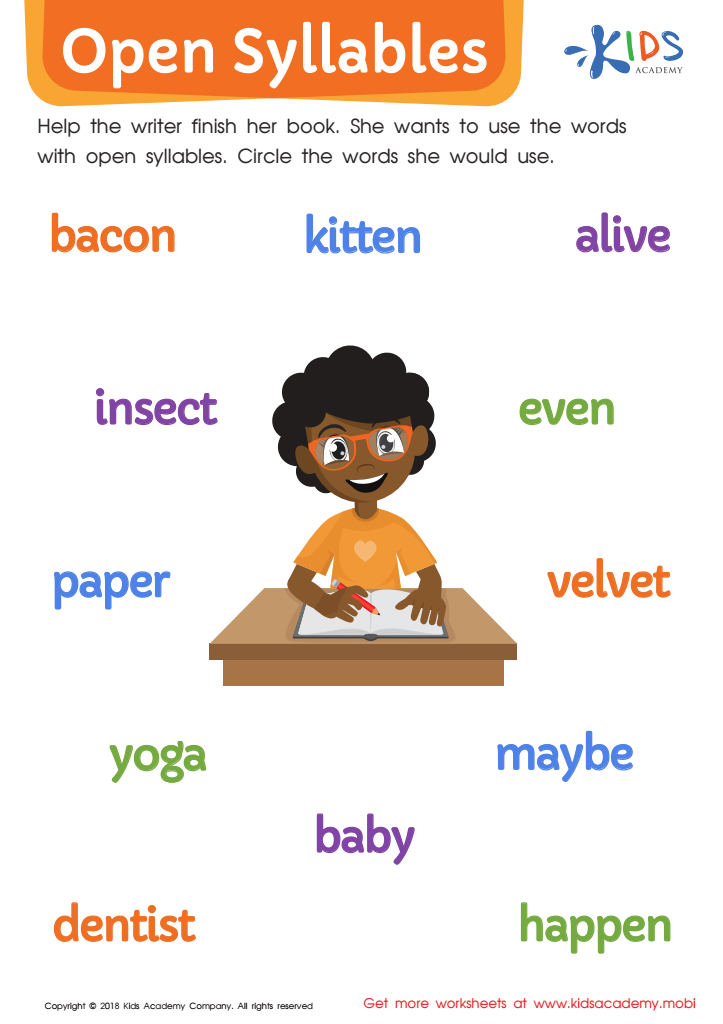

Open Syllables Worksheet
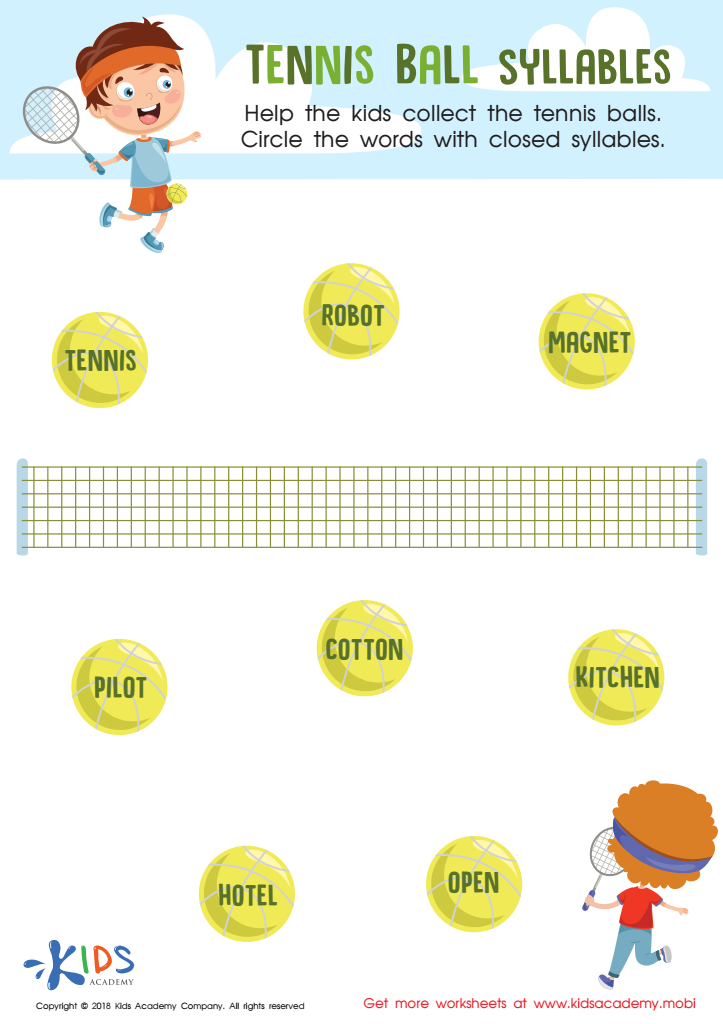

Tennis Ball Syllables Worksheet
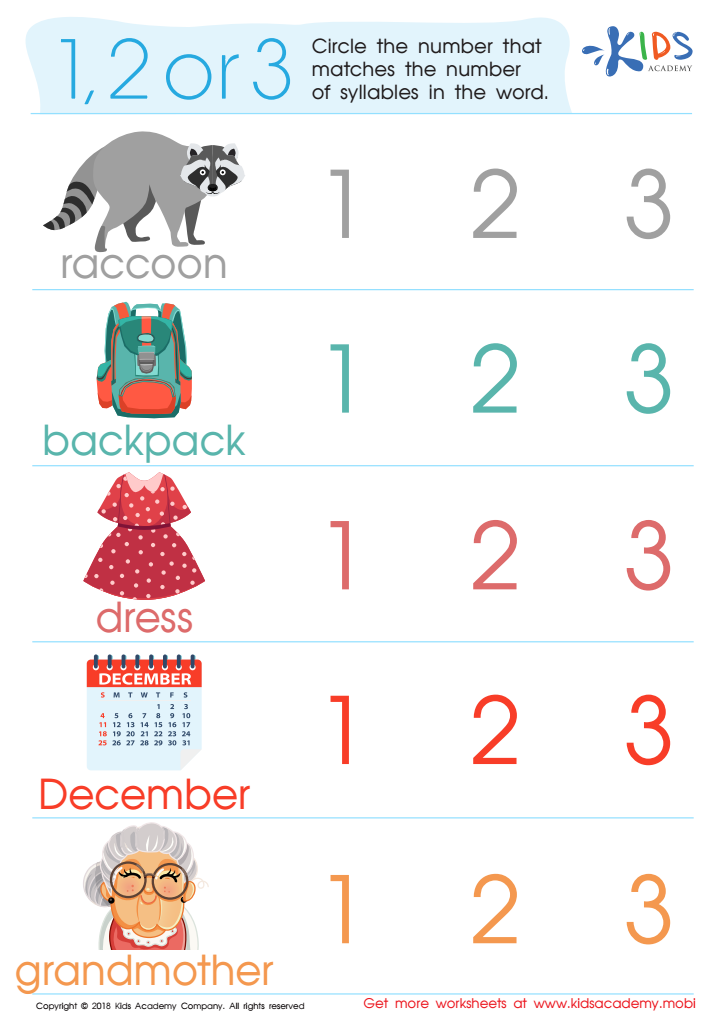

1, 2 or 3? Worksheet
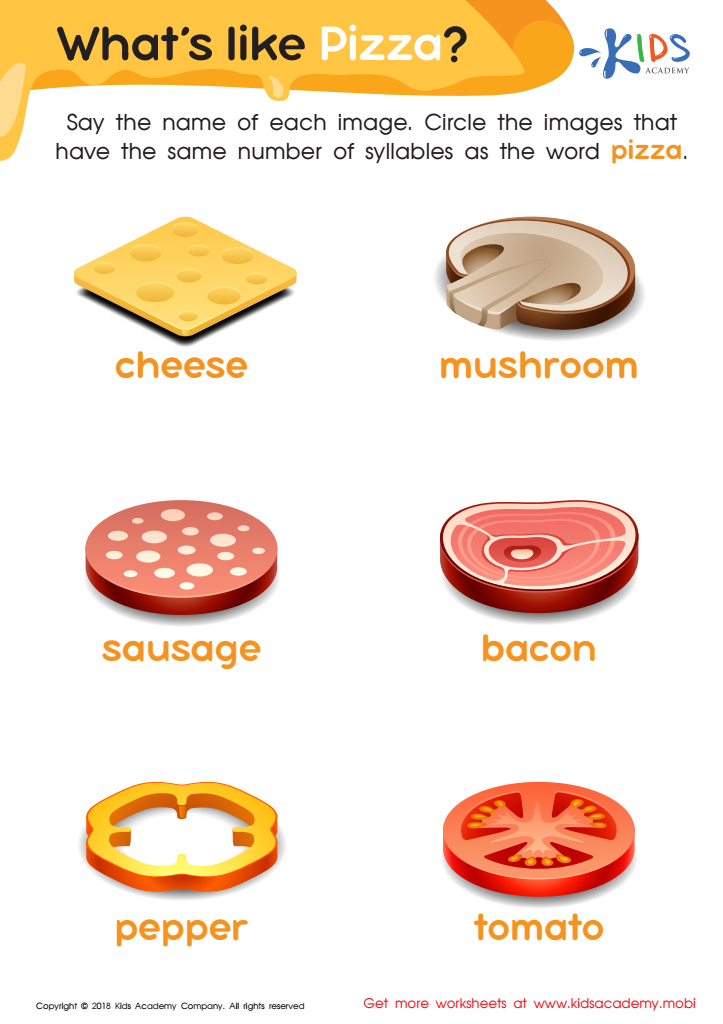

What's Like Pizza? Worksheet
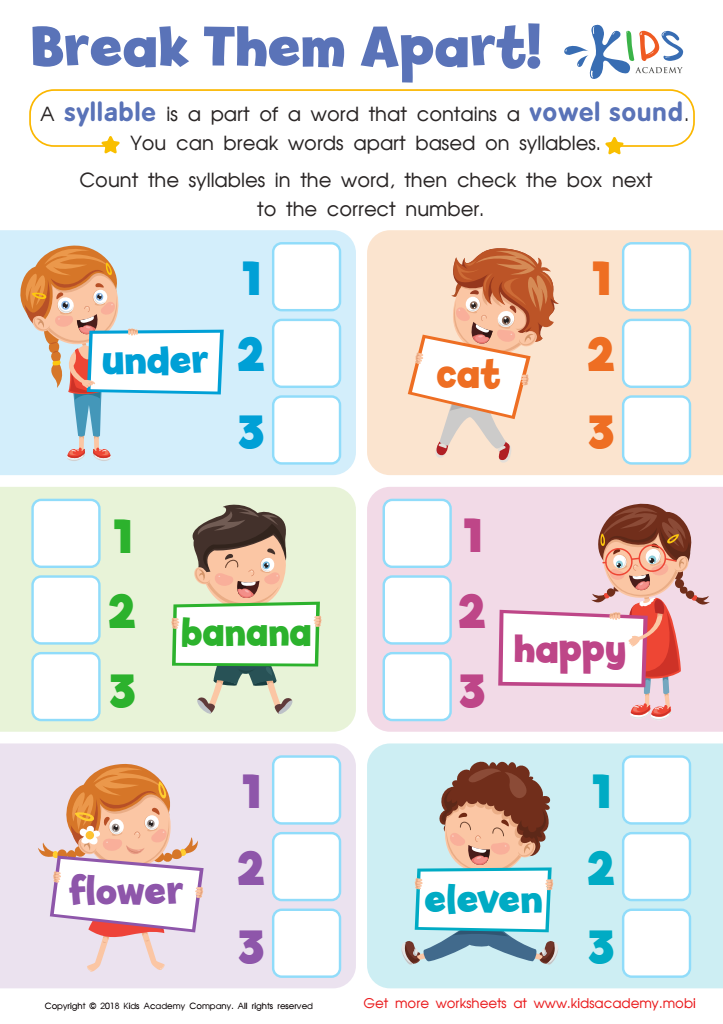

Reading: Break Them Apart Worksheet
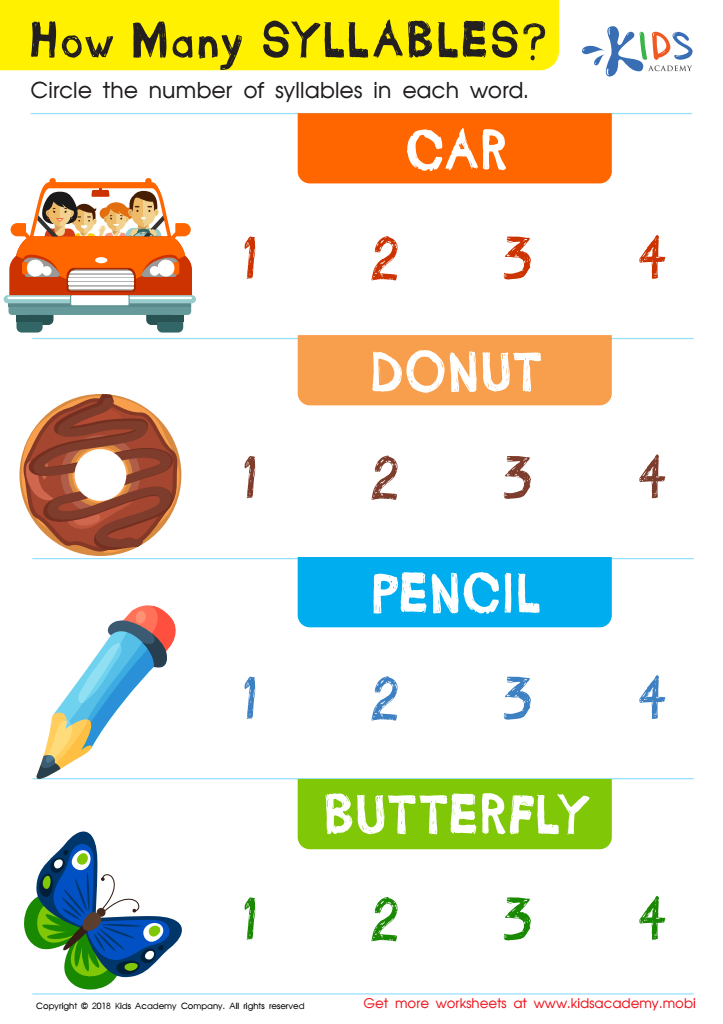

How Many Syllables? Worksheet
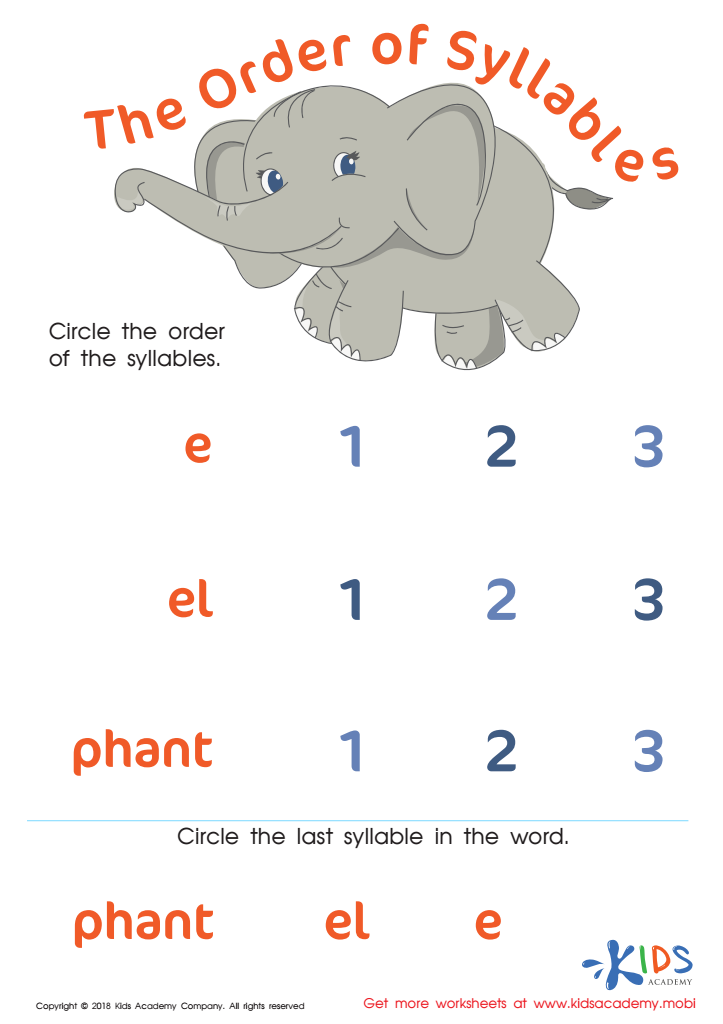

The Order of Syllables Worksheet
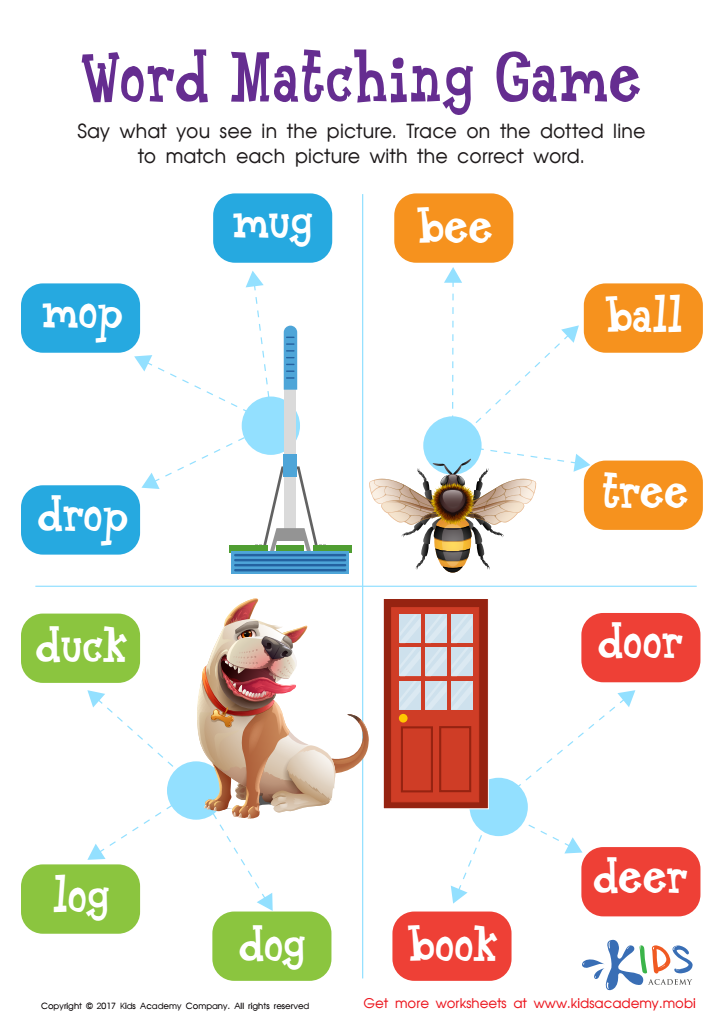

Word Matching Game Worksheet


Lets Count Syllables Worksheet
Caring about normal elementary phonics instruction for children ages 5-8 is vital because it lays the foundation for essential reading and language skills. During these formative years, the brain is highly receptive to learning linguistic structures. Phonics helps children understand the relationships between letters and sounds, enabling them to decode new words, improve pronunciation, and develop proper spelling. Mastery of phonics is directly linked to proficient reading abilities, which are critical for academic success across all subjects.
Moreover, learning phonics enhances children's confidence and love for reading. Early exposure to phonics paves the way for fluent reading, allowing kids to enjoy books and comprehend stories more easily. This enthusiasm for reading cultivates a lifelong habit, contributing to continuous learning and personal growth.
Teachers and parents who prioritize phonics instruction can identify and address reading difficulties early on, helping to prevent future academic struggles. It also prepares children for more advanced literacy skills, such as comprehension and critical thinking.
In essence, investing in phonics education is an investment in a child's educational journey, ensuring they possess the fundamental tools necessary for effective communication, academic achievement, and the joy of reading.

 Assign to the classroom
Assign to the classroom






